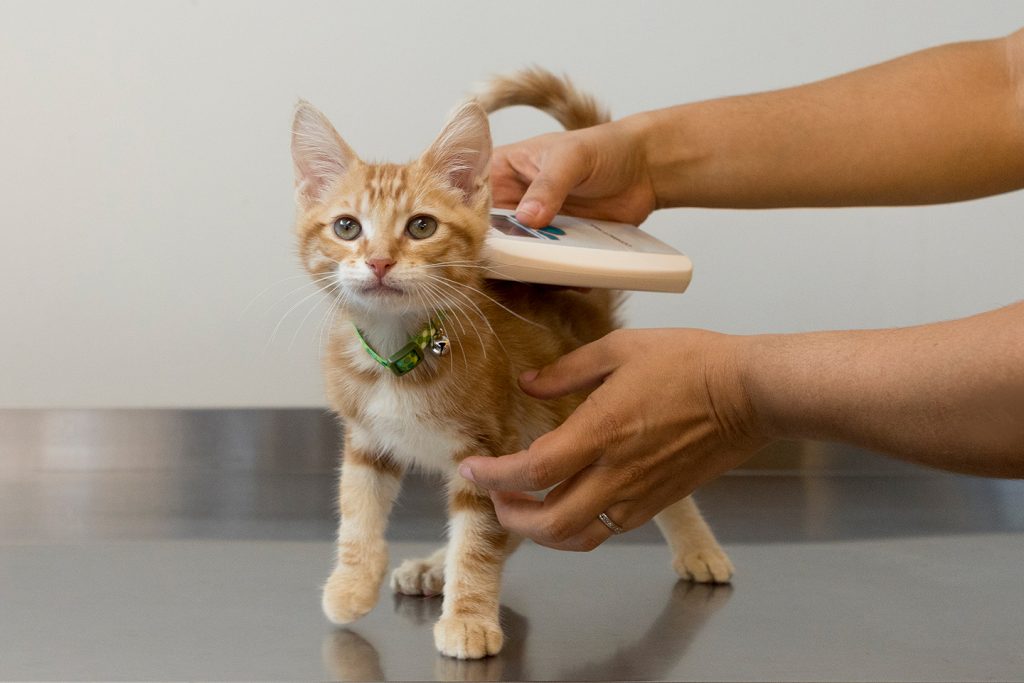July is National Lost Pet Prevention Month. Many pets are displaced this month following firework displays and celebrations. Annually over 10 million pets go missing, and the majority of them tragically do not make it back home. We encourage you to take measures to ensure the safety and well-being of your pet year-round so that your furry family member does not join the ranks of the animals that don’t return home. Below are a few suggestions for preventing pets from going missing, and ensuring they can make their way home if they do.
- Make sure your pets have collars and legible tags. Collars can become worn or lose so check them often. You should be able to fit two fingers comfortably between your pet’s neck and collar; any more than that and it is too loose, any less and it is too tight. Ensure you can read all the information on your animals’s tag. Include your pet’s address and a contact number. If the tag becomes scratched or worn and illegible, replace it immediately.
- Microchipping is an easy and proactive solution to finding your lost pet. You can have your pet microchipped at our monthly low-cost vaccination clinics for just $35, which is less than what many veterinary clinics charge. Microchipping is a simple procedure; the chip is injected under the skin like a vaccination, where it can last up to 25 years. Unlike collars and tags which can slip off or become worn, microchips are permanent and can scanned by any veterinarian or animal agency.
- Ensure your yard is secure. Drop to your pet’s level and examine the perimeter of your fence and gates and check for holes or loose fencing. Fix any problems immediately to keep your pet from getting lose and injured. Make sure your fencing is sturdy and won’t be blown down in a strong Western Colorado wind storm.
- Introduce yourself and your pet to your neighbors. If your neighbors know your pet, they can easily bring it home or alert you if it gets loose.
- Train your pets to stay in the yard. If you have a pet that jumps the fence or rushes the door, this behavior can be modified. Roice-Hurst has a dog behavior counselor on staff who can work with you to correct problem behaviors like escaping. Call our Animal Resource Center today to schedule a free consult at 970-434-7337, ext. 104.
- Keep pets in the house during firework displays and celebrations. Many pets become scared and their instinct is to run and hide when they hear loud noises. The two weeks surrounding Fourth of July are the busiest of the year for Mesa County Animal Services and our shelter sees an increase in homeless pets in the days and weeks following fireworks displays.
Being a proactive pet owner will ensure your pets’ happiness and safety. For more information on keeping your pet safe, come down to the shelter today and speak to our awesome staff!

